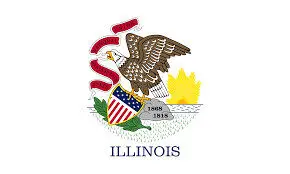Maine Wills vs. Trusts
The Pine Tree State offers unique estate planning features including a statutory will template, state-level estate taxes with a $5.87 million exemption, and transfer-on-death real estate deeds. With Maine’s graduated spousal elective share based on marriage length, knowing the important differences between wills and trusts can save your family significant time, money, and stress while preserving your legacy.
Table of Contents
US Map For The Different Will and Trust Requirements by State
Interested in other state’s law regarding wills and trusts? Click the ABOVE state you want to be taken to.
Maine Will Requirements
A Maine Last Will and Testament should include:
- Age and Capacity: Testator must be “of sound mind” and at least 18 years old or an emancipated minor
- Format: Must be in writing
- Signature: Must be signed by the testator or by someone else at the testator’s direction and in their presence
- Witnesses: Must be signed by at least two competent witnesses
Witness Requirements
For Maine wills:
- Witnesses must sign the will within a reasonable time after either observing the testator sign or hearing the testator acknowledge the signature’s authenticity
- Although witnesses with no interest in the testator’s estate are preferable, a Maine will is not invalid solely because it is witnessed by an individual with an interest in the testator’s estate
Incorporation by Reference
Maine law allows a testator to incorporate by reference another document in existence at the time the testator executes the will:
- Maine’s Probate Code specifically allows for a “memorandum of personal property” list to be incorporated
- The list must be signed by the testator or in the testator’s handwriting
- The list must identify the specific items and beneficiaries with reasonable certainty
- The memorandum can be prepared before or after the will’s execution and may be altered by the testator later
- Personal property lists cannot include money or real estate
Self-Proved Wills
Maine wills need not be notarized, but a will can be made “self-proved” through execution of a notarized affidavit:
- The affidavit must be signed by the testator and the will’s witnesses
- Self-proved wills can be admitted to probate without witness testimony
- The Maine legislature provides a statutory self-proved affidavit form at Maine Rev. Stat., Title 18-C, §2-503
- The testator attests that the will was signed voluntarily while having legal capacity and under no constraint or undue influence
- Witnesses attest that the testator signed willingly, had legal capacity, was under no duress, and that witnesses signed in the presence of the testator and each other
Need help creating the right estate plan for your Maine family?
Our estate planning specialists can help you navigate Maine’s unique laws and create a personalized strategy.
THE ULTIMATE FREE DOWNLOAD
The Estate Planners Tactical Guide
Essential Legal Protection for Achievers

Amendment, Revision, and Revocation of Maine Wills
Amending a Maine Will
A Maine testator can amend an existing will by:
- Executing a new will that complies with all legal requirements
- Creating a codicil (an addendum to an existing will) that complies with all requirements for execution of an original will
Revoking a Maine Will
Maine wills can be revoked in whole or in part by:
- Performance of a “revocatory act” with the intent to revoke the will, such as burning, tearing, or obliterating the document
- The destruction must be accomplished by the testator or by someone else acting at the testator’s direction while in the testator’s presence
- Execution of a subsequent will that revokes the prior will either expressly or by inconsistency
Automatic Revocation by Divorce
Effect of Marriage After Will Execution
If a testator marries after executing a will:
- The surviving spouse receives a share of the testator’s estate as if the testator had died without a will
- Property devised to a child of the testator born before the marriage and not also the surviving spouse’s child is excluded when calculating the surviving spouse’s intestate share
- A later-married surviving spouse is not entitled to an intestate share if:
- The will was made in contemplation of the marriage
- The will expressly states that it is effective notwithstanding a subsequent marriage
- The testator provided for the spouse through non-probate transfers intended in lieu of the will
Children Born After Will Execution
If a testator has a child after executing a will and the after-born child is not provided for:
- The after-born child may be entitled to an intestate share in the estate
- If the testator already had children when making the will and those children are provided for, an after-born child’s share is limited to the amount devised to the testator’s other children
- An after-born child’s intestate share does not apply if the will leaves substantially all of the testator’s estate to the after-born child’s other parent
Holographic and Oral Wills
Holographic Wills
A document that does not satisfy the formalities ordinarily required for wills under Maine law may nonetheless be valid as a handwritten (or “holographic”) will. Requirements include:
- Must be signed by the testator personally
- All material provisions must be in the testator’s handwriting
Oral (Nuncupative) Wills
Maine law no longer recognizes oral (or “nuncupative”) wills.
Maine Trust Requirements
Trusts in Maine are primarily governed by the Maine Uniform Trust Code, with provisions relating to creation of trusts beginning at Me. Rev. Stat., Title 18-B §§401, et. seq.
Requirements for a Valid Maine Trust
For a trust to be valid under Maine law:
- A Maine trust’s purpose must not be contrary to public policy or impossible to achieve
- In general, the purpose must be to benefit the trust’s beneficiaries
- A Maine trust is void to the extent its creation was induced through fraud, duress, or undue influence
- The settlor must have adequate capacity and express an intent to create a trust
- For revocable trusts, the standard for capacity is the same as for wills
Trust Creation Methods
Maine trusts can come into being through:
- Transferring property to a trustee (either during life or through a will or other testamentary disposition)
- Exercising a power of appointment in favor of a trustee
- Declaring that identifiable property is owned as trustee
Required Trust Elements
Maine trusts must also have:
- At least one beneficiary who can be definitely ascertained at present or in the future (with exceptions for charitable trusts, trusts for animal care, and certain trusts created for noncharitable purposes)
- A trustee with actual duties to perform
Sole Trustee/Beneficiary Rule
A Maine trust’s sole trustee cannot also be its sole beneficiary.
Trustee Responsibilities
Maine trustees:
- Must exercise reasonable care, skill, and caution in carrying out their duties
- Are generally governed by the “prudent investor rule” when managing assets
- Must invest trust assets prudently considering the trust’s purposes, terms, distribution requirements and other circumstances
- May have their duties expanded, restricted, modified, or eliminated by the trust instrument
Oral Trusts
Though most trusts are evidenced by a written instrument setting forth the trust’s terms:
- Maine’s Uniform Trust Code allows oral trusts
- An oral trust’s creation and terms must be established by clear and convincing evidence
- Other statutes may require certain types of trusts to be evidenced in writing
- Trusts involving Maine real estate must be evidenced by a signed, written instrument
Trust Revocability
Maine law assumes a trust is revocable unless it is expressly made irrevocable. The settlor of a revocable trust can amend or revoke the trust by:
- Complying with the terms set forth in the trust instrument
- Creating a subsequent will that expressly references the trust or distributes property that would otherwise pass through the trust
- Using any other method that clearly shows the settlor’s intent to revoke or amend the trust
Trust Termination
Maine trusts terminate upon:
- Revocation or expiration under the trust’s own terms
- When there is no purpose of the trust remaining to be achieved
- When the trust’s purposes become unlawful, contrary to public policy, or impossible to achieve
A trust may also be modified or terminated by a court upon the petition of the settlor, trustee, and/or beneficiaries. In some circumstances, modification or termination of a trust may be made upon the consent of the trustee and all beneficiaries. A court may also modify a Maine trust to conform to the settlor’s intentions or to achieve the settlor’s tax objectives.
THE ULTIMATE FREE DOWNLOAD
The Estate Planners Tactical Guide
Essential Legal Protection for Achievers

Special Considerations
Estate Taxes
State and Federal Estate Taxes
Large estates in Maine are potentially liable for estate taxes at both the state and federal levels:
- Maine’s estate-tax exemption amount is $5.87 million (2021)—about half of the $11.7 million federal exemption
- Many Maine estates qualify for the state-level tax that do not qualify for the federal version
- Unused Maine estate-tax exemptions are not portable between spouses, unlike federal exemptions
- Maine’s estate tax rate starts at 8% and increases to 12% for estates over $11.87 million
Maine does not charge an inheritance tax.
Simplified Probate
Small Estate Procedures
Maine law authorizes summary administration of qualifying small estates:
- Summary administration simplifies the estate process by allowing administration to conclude without further court supervision
- An estate’s personal representative may request summary administration if the estate’s net value does not exceed statutory allowances and exemptions, estate administration costs and expenses, funeral expenses, and reasonable healthcare costs from the decedent’s last illness
- Maine also allows collection of an estate’s personal property through an affidavit completed by the decedent’s successor if the estate’s value does not exceed $40,000
Maine Statutory Will
State-Provided Will Template
The Maine legislature publishes a statutory will template within Maine Rev. Stat., Title 18-C, §2-517:
- A properly executed will completed in the statutory form is presumed valid under Maine law
- Maine’s statutory will is a basic form that makes general distributions of assets, names a personal representative, and allows appointment of a guardian for minor children
- The statutory will may be insufficient for larger or more complex estates
Non-Probate Transfers
Transfer-on-Death (TOD) Deeds and Vehicle Titles
TOD Real Estate Transfers
Maine law authorizes TOD designations on real estate deeds—commonly called “TOD deeds” or “beneficiary deeds”:
- A TOD designation is included within a recorded TOD deed during the owner’s life
- Title to the real estate automatically transfers to the named beneficiary upon the owner’s death
- The beneficiary does not acquire present rights in the property until the owner’s death actually occurs
Vehicle Title Transfers
Maine does not currently allow TOD designations on motor vehicle titles. However, Maine’s motor vehicle laws provide for automatic transfer on death of vehicle titles held by a married owner:
- When a married Maine resident who owns a vehicle registered in Maine dies, ownership transfers to the surviving spouse
- This automatic transfer doesn’t apply if the deceased spouse’s will provides otherwise or a lienholder does not grant permission
Maine Spendthrift Trusts
Asset Protection Through Trusts
Maine recognizes spendthrift trusts, which include provisions restraining transfer of beneficiary interests:
- Spendthrift provisions protect trust assets from claims of most creditors of beneficiaries
- A creditor cannot reach a beneficiary’s interest in a spendthrift trust until actually distributed to the beneficiary
- If a spendthrift trust is revocable, the settlor’s creditors can attach trust assets during the settlor’s lifetime or upon the settlor’s death through claims against the estate
- If a spendthrift trust is irrevocable, the settlor’s creditors can only reach the amount of trust assets that can be distributed to the settlor or for the settlor’s benefit
Need help creating the right estate plan for your Maine family?
Our estate planning specialists can help you navigate Maine’s unique laws and create a personalized strategy.
Wills vs. Trusts: Comparison
| Feature | Wills | Trusts |
|---|---|---|
| When It Takes Effect | After death | Can be immediate (living trust) or after death (testamentary trust) |
| Probate Process | Requires probate | Assets in trust avoid probate |
| Privacy | Public record | Generally private |
| Challenges | Can be challenged in probate court | More difficult to challenge |
| Cost to Create | Generally less expensive | Usually more expensive |
| Ongoing Administration | None until death | May require ongoing management |
| Protection During Incapacity | None (requires separate power of attorney) | Can provide management if grantor becomes incapacitated |
| Maine Special Feature | Statutory will template available; recognizes holographic wills | Presumed revocable; oral trusts recognized with clear and convincing evidence |
Conclusion
Creating a will or trust does not have to be difficult or intimidating for Maine residents. However, certain circumstances—like second marriages, stepchildren, aging parents, special needs beneficiaries, guardianships, and business interests—can add complexity and result in unforeseen consequences.
Maine offers unique estate planning tools like a statutory will template, transfer-on-death real estate deeds, and a graduated spousal elective share based on marriage length. The state’s estate tax exemption of $5.87 million (significantly lower than the federal exemption) makes tax planning particularly important for larger estates. The simplified probate process for small estates provides important options for families with modest estates.
When any out-of-the-ordinary issues are present, it’s advisable to consult with an experienced attorney familiar with and licensed under Maine law to ensure your estate plan takes full advantage of the state’s provisions while avoiding potential pitfalls.
Ready to Protect Your Maine Family’s Future?
Join the thousands of Maine families who have secured their legacy with our personalized estate planning strategies. Our approach helps you avoid probate, protect assets, and ensure your wishes are carried out exactly as you intend.
- ✓ Avoid costly probate and family disputes
- ✓ Maintain privacy of your financial matters
- ✓ Protect assets during incapacity
- ✓ Create safeguards for children and loved ones
Explore Estate Planning Strategies
Free consultation with our estate planning specialists
THE ULTIMATE FREE DOWNLOAD
The Estate Planners Tactical Guide
Essential Legal Protection for Achievers

FAQs: Maine Wills and Trusts
Q: What are the requirements for a valid will in Maine?
A: A valid Maine will must be in writing, signed by the testator (who must be at least 18 and of sound mind), and witnessed by at least two competent people. The testator may also sign through another person at their direction and in their presence. Maine also recognizes holographic wills that are entirely in the testator’s handwriting and signed by the testator.
Q: Does Maine have a state estate tax?
A: Yes, Maine has a state estate tax with an exemption amount of $5.87 million (as of 2021), which is significantly lower than the federal exemption. The tax rate ranges from 8% to 12% for estates over $11.87 million. Unlike the federal estate tax exemption, Maine’s exemption is not portable between spouses, making estate tax planning particularly important for married couples with substantial assets.
Q: What is a Maine statutory will?
A: Maine provides a statutory will template in Maine Revised Statutes, Title 18-C, §2-517. When properly executed, a will completed using this template is presumed valid under Maine law. The statutory will is a basic form that allows for general asset distribution, naming a personal representative, and appointing guardians for minor children. While convenient, this template may not be sufficient for more complex estates or specialized planning needs.
Q: Can I use a transfer-on-death deed in Maine?
A: Yes, Maine law authorizes transfer-on-death (TOD) designations on real estate deeds. These “TOD deeds” or “beneficiary deeds” allow property to automatically transfer to a named beneficiary upon the owner’s death without going through probate. The deed must be properly recorded during the owner’s lifetime, but the beneficiary has no rights to the property until the owner’s death. This provides a simple way to transfer real estate outside of probate while maintaining full control during your lifetime.
Q: How are surviving spouses protected under Maine law?
A: Maine protects surviving spouses through an elective share right that allows them to claim a portion of the deceased spouse’s “augmented estate” instead of what they would receive under a will. The portion designated as “marital property” ranges from 3% to 100% based on the length of the marriage, with the spousal share being one-half of that amount. This prevents complete disinheritance of a spouse. Additionally, if there’s no will, a surviving spouse can receive between one-half to all of the estate, depending on which other relatives survive.
Q: What happens if I marry after making my will in Maine?
A: If you marry after executing a will in Maine, your surviving spouse may receive a share of your estate as if you had died without a will (an intestate share). However, this doesn’t apply if your will was made in contemplation of the marriage, if your will expressly states it remains effective despite future marriages, or if you provided for your spouse through non-probate transfers intended to replace a will provision.
Q: Do Maine’s small estate procedures allow me to avoid probate?
A: Yes, Maine offers simplified probate procedures for qualifying small estates. If the estate’s net value doesn’t exceed statutory allowances, exemptions, administration costs, funeral expenses, and healthcare costs from the decedent’s last illness, a personal representative can request summary administration. Additionally, for estates valued under $40,000, Maine allows collection of personal property through an affidavit completed by the decedent’s successor, bypassing full probate proceedings.





